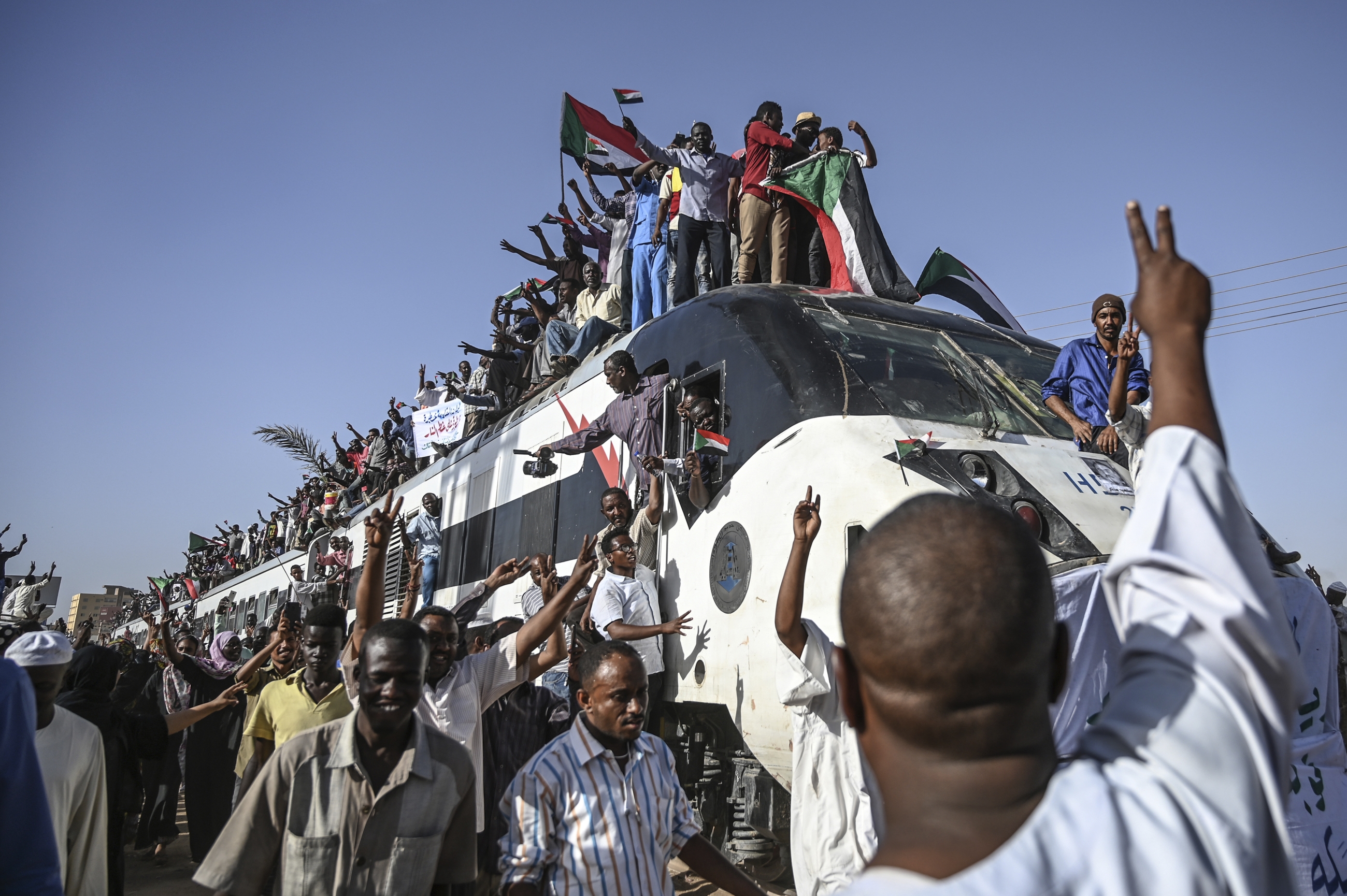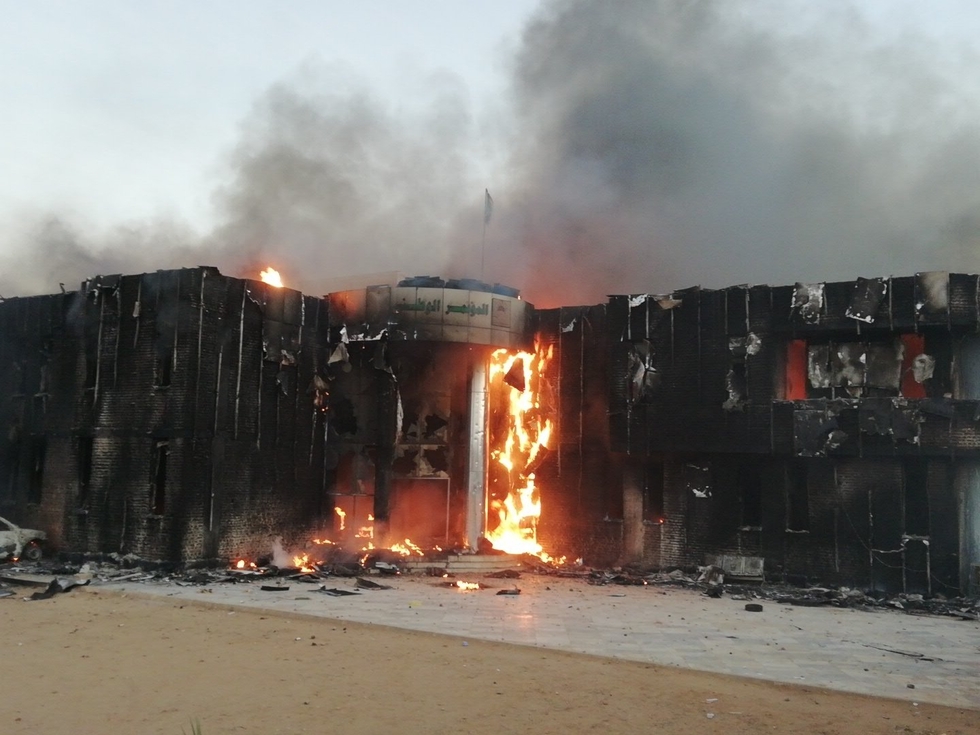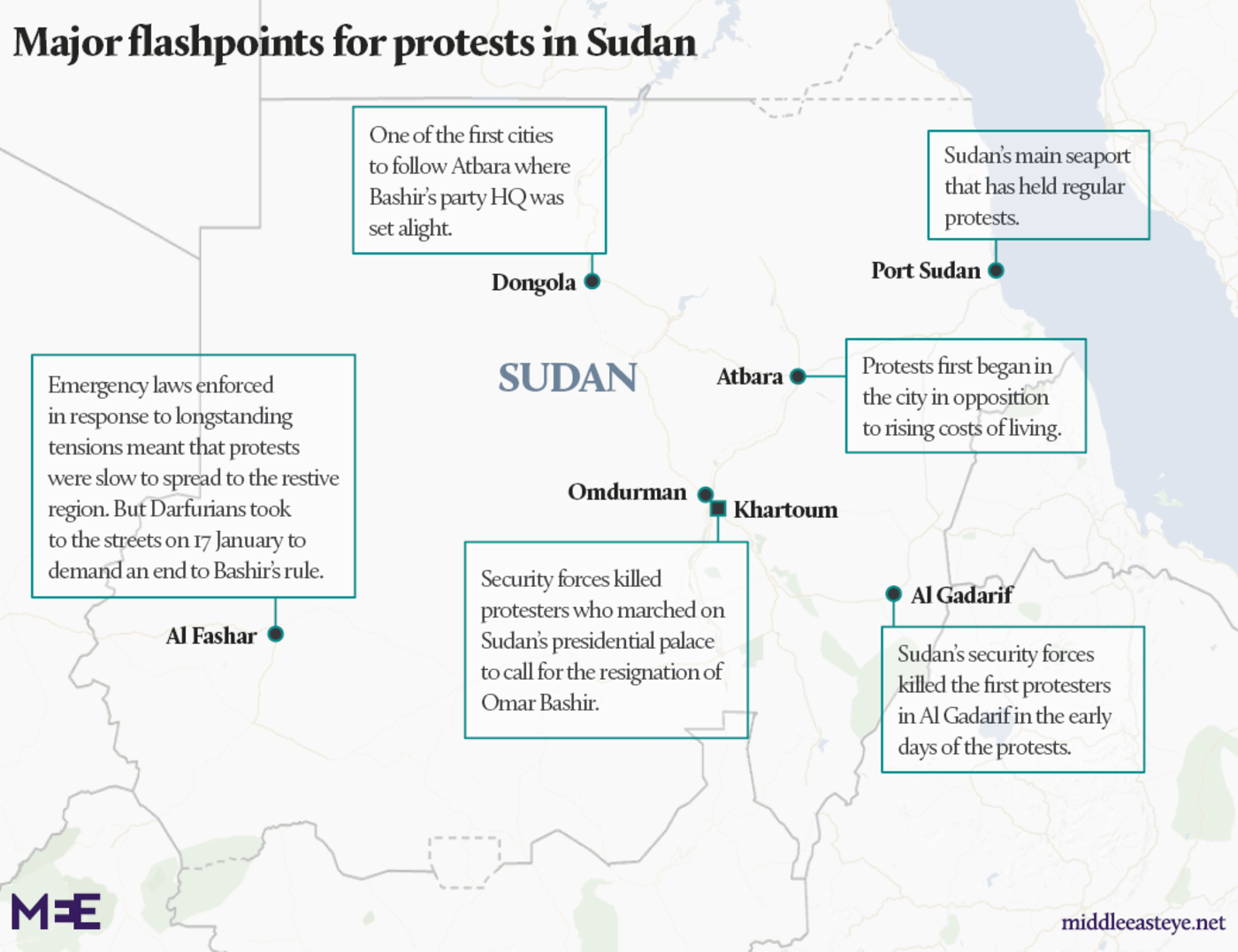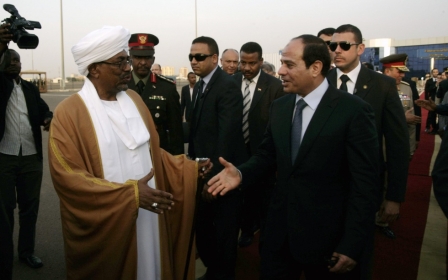Sudan’s city of iron and fire comes to the capital on a train

The train that rolled triumphantly into Khartoum on Tuesday evening was barely visible under the crowd of people standing and hanging from its every surface, both inside and out, waving Sudanese flags as an enamoured audience lining the railway tracks welcomed them.
The convoy from Atbara, the city that ignited the movement that overthrew Omar al-Bashir after 30 years in power, had arrived in the capital, where protesters have been massing to demand the dismantling of the country’s entire system of rule.
The city of “iron and fire”, at the heart of Sudan’s railway network and a home to the country’s labour activists, already had a legacy for dissent against rulers before and after Sudan’s independence in 1956.
But when students set fire to the local offices of Bashir’s ruling National Congress Party, the images that tore through social media inspired an uprising around the country.
Stay informed with MEE's newsletters
Sign up to get the latest alerts, insights and analysis, starting with Turkey Unpacked
Four months later, those protests have transformed into a two-week sit-in outside the country’s military headquarters that has forced out Bashir and now protesters hope to do the same to the military leadership that replaced him.
“I’m very proud of my city and people that we began the revolution and we are still making big sacrifices to achieve the great goals of this revolution,” activist Kaltoum Ahmedan told Middle East Eye after arriving in Khartoum. “I’m filled with pride when I see people waiting for us along the track of the railway and at the sit-in.”
'I’m filled with pride when I see people waiting for us along the track of the railway and at the sit-in'
- Kaltoum Ahmedan, activist on Atbara train
Hundreds arrived with the train on Tuesday, which carried not only those from Atbara but also jubilant passengers who had clambered onto its roof along the way.
Railway worker Ishag Ali said the idea for a convoy was discussed in railway workshops and voted on by workers, an action reminiscent of the activism that gained Atbara’s workers their reputation in the past.
“When the train started moving from Atbara, thousands of people joined along the way from the cities of Damar, Shandi and others and even from the villages of Jaili, Fadnia and other outskirts and neighbourhoods of Khartoum city itself,” he said.
“The cities of Sudan rise up”
By mid-December, there had already been weeks of simmering anger at rising living costs caused by austerity measures imposed by Bashir. Impromptu protests by students and school children were being quickly shut down by security forces deployed across the country.
Then, on 19 December, the anger took a surprising turn when protesters in Atbara torched the ruling party headquarters. Authorities imposed a localised state of emergency but the curfew was defied and more protesters came out in nearby cities. The next day, other parts of Sudan followed. On social media, posts about the protests were tagged "the cities of Sudan rise up".
Veteran unionist and labour leader Mohammed al-Gitai, 75, told MEE that the city has suffered under Bashir’s “anti-labour” rule, with families traditionally employed by the railway industry, and dependent on it, now finding their children dismissed by the main employer, Sudan Railways Corporation.
“They don’t like to see and hear the demands of the labourers and this is why they dismissed thousands from the railway and other public institutions because of their privatisation policies,” he said.
The story has been similar in other parts of Sudan where protesters were immediately angered by shortages of bread and a trebling of its price, but also fundamentally feared for their basic incomes because of the impact of privatisation on key industries.
In Port Sudan, where protesters also arrived from on Tuesday, workers were among the first to follow Atbara, similarly concerned about their futures after the crucial port was secretly sold off to a Dubai-based company from the Phillipines.
The protest movement’s origins in Atbara had significance for many. Its position as a key railway hub had made it historically important to Sudan’s protests against rulers - both the British empire and military rulers who followed after independence. Its resistance was crushed by military ruler Gafaar Nimeiri in the early 1980s but was key again by 1985, when protests eventually led to the army siding with the population and ousting Nimeiri.
The current sit-in in Khartoum began on 6 April when protesters tried to channel previous success by marking the anniversary of the 1985 uprising.
Gitai had been part of both that movement and the one that returned Sudan to civilian rule in 1964 when, like now, workers decided to create a convoy of trains that carried protesters into Khartoum.
“The same happened in the April 1985 uprising when the railway labourers closed the movement of imports and goods from Port Sudan to Atbara,” he said.
Turning the momentum on military rule
When Bashir was ousted on 11 April, his defence minister Awad ibn Auf told the nation that the Transitional Military Council would be taking power for two years, to manage the handover to civilian rule.
The announcement was flatly rejected by the protesters, who halted their brief celebration over the end of Bashir’s rule and returned to the streets to demand an immediate transition into civilian government.
Ibn Auf was removed as the TMC’s leader the next day but the military remains in power. It has spoken of its support for the protesters but negotiations with a coalition of activist groups have produced no results.
“We know the military council is refusing to hand over power to the civilians and that means they are conspiring to cancel our revolution, this is why we formed this train convoy to join our brothers in the sit-in in Khartoum,” Atbara resident Tarig Abdul Hamid told MEE on his arrival.
Political analyst Khalid Taha said Atbara’s legacy was important and the arrival of new protesters would make the TMC more hesitant about breaking up the sit-in.
“The protest is gaining more momentum and becoming more inspiring as new people, with new ambitions and demands, come from outside Khartoum and from outside of the professional class,” he said.
That sentiment was reflected as the train entered Khartoum, passing by thousands of locals who celebrated their arrival.
Alwaid Ahmed, a protester among the welcoming crowd, said Atbara’s arrival was symbolic and motivated the protesters to continue.
“We are very proud of the people of Atbara and their history of struggling [against governments] and I’m happy to be here receiving them on this great day.”
Middle East Eye delivers independent and unrivalled coverage and analysis of the Middle East, North Africa and beyond. To learn more about republishing this content and the associated fees, please fill out this form. More about MEE can be found here.






